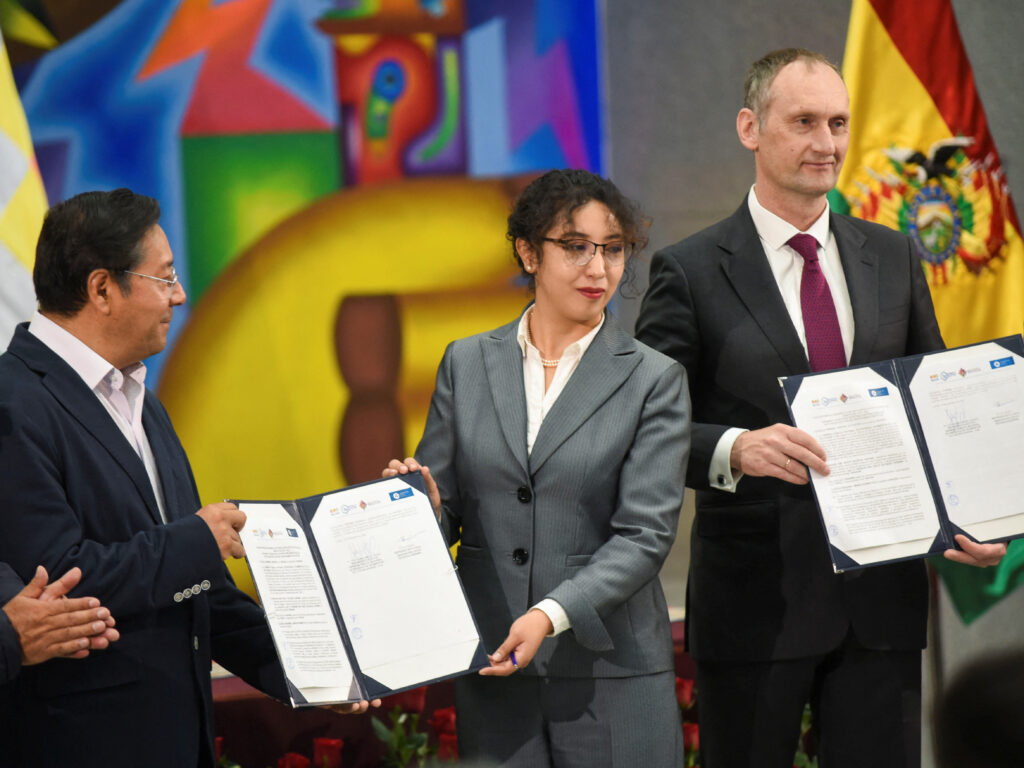Understanding the Impact of Global Lithium Demand on Bolivian Communities
Lithium, a key component in batteries for electric vehicles and renewable energy storage, has seen a surge in global demand. Bolivia holds one of the world’s largest lithium reserves, making it a focal point in the race for sustainable energy sources.
The Social and Environmental Challenges
Increased lithium extraction can have significant social and environmental implications for Bolivian communities. Mining activities may lead to water scarcity, soil contamination, and disruption of traditional indigenous lands, impacting local livelihoods and ecosystems.
Empowerment vs. Exploitation
It is crucial to strike a balance between economic development through lithium mining and protecting the rights and well-being of local communities. Empowering residents through fair labor practices, environmental safeguards, and community engagement can mitigate the negative impacts of resource exploitation.
Sustainable Development and Responsible Practices
Adopting sustainable mining practices, investing in local infrastructure and education, and ensuring transparent revenue sharing are critical for ensuring the long-term welfare of Bolivian communities affected by the global lithium demand.
How Foreign Investment is Shaping Bolivia’s Mining Landscape
Foreign investment plays a pivotal role in transforming Bolivia’s mining sector, making it a key driver of economic growth and development in the country. With abundant mineral resources like tin, silver, and lithium, Bolivia has attracted significant attention from international investors keen on tapping into these valuable assets.
Foreign companies bring not just capital but advanced mining technologies and expertise that have the potential to revolutionize Bolivia’s mining landscape. These investments facilitate the exploration and extraction of mineral reserves previously deemed challenging to access, thereby enhancing the country’s overall mining productivity and output.
Moreover, the infusion of foreign capital introduces modern sustainable mining practices that prioritize environmental conservation and social responsibility. This ensures that Bolivia’s mining activities align with global standards, promoting eco-friendly extraction methods and fostering positive relationships with local communities.
However, the influx of foreign investment also raises concerns about resource exploitation, environmental impact, and fair distribution of profits. It is crucial for Bolivia to navigate this partnership with caution, balancing economic benefits with sustainable practices to safeguard its natural resources for future generations.
In conclusion, foreign investment in Bolivia’s mining industry is reshaping its landscape by bringing in capital, technology, and sustainability initiatives. As Bolivia continues to harness its mineral wealth through strategic collaborations with foreign investors, striking a harmonious balance between economic growth and environmental conservation will be paramount for the country’s long-term prosperity.
Grassroots Movements: Bolivian Resistance to Lithium Exploitation
Exploring the grassroots movements in Bolivia against the exploitation of lithium unveils a powerful narrative of community-led resistance. These movements, deeply rooted in indigenous traditions, symbolize a connection to the land and a determination to protect it.
Empowering Local Communities
Bolivian grassroots movements work tirelessly to empower local communities and raise awareness about the environmental and social impacts of lithium extraction. By mobilizing the population and advocating for sustainable practices, they strive to safeguard their natural resources for future generations.
Sustainable Solutions
Through protests, educational campaigns, and legal battles, these movements aim to push for sustainable solutions that prioritize environmental conservation and respect for indigenous rights. Their efforts shed light on the importance of balancing economic development with ecological preservation.
Challenges and Triumphs
Despite facing challenges and opposition from powerful entities, Bolivian grassroots movements continue to stand firm in their commitment to protecting the environment and promoting social justice. Their resilience and collective action exemplify the strength of community-driven initiatives in the face of corporate exploitation.
The Future of Lithium Mining: Striking a Balance Between Economic Growth and Local Rights
Breaking Down the Headlines
Lithium mining plays a crucial role in the clean energy transition due to its use in batteries for electric vehicles and renewable energy storage. However, the expansion of lithium mining operations raises concerns about environmental impacts, indigenous rights, and local community well-being.
The Bigger Picture
As demand for lithium continues to surge, striking a balance between economic growth driven by the mining industry and respecting local rights and environmental sustainability is becoming increasingly challenging. Historically, extractive industries have often prioritized profits over social and environmental considerations, leading to conflicts and long-term consequences.
What This Means Going Forward
The future of lithium mining will depend on how stakeholders navigate the delicate balance between economic interests and the rights of local communities. Moving forward, it is crucial for governments, mining companies, and communities to engage in transparent dialogue, implement sustainable mining practices, and uphold the rights of indigenous peoples and affected communities to ensure a more equitable and environmentally responsible lithium mining sector.
